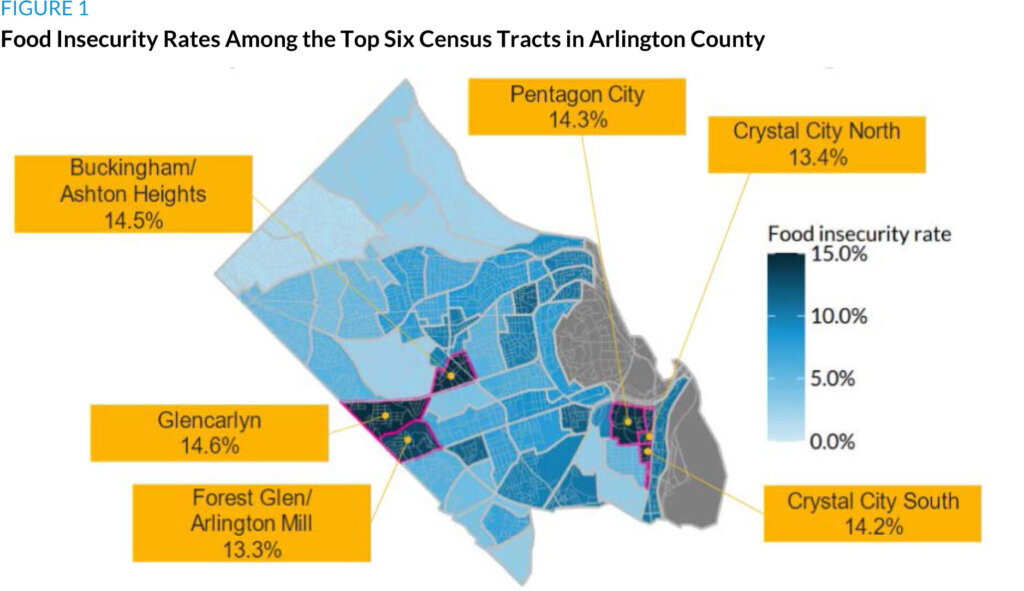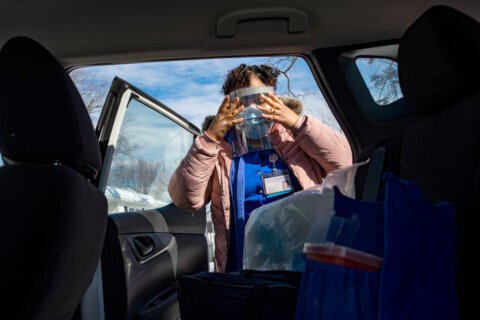Virginia’s Arlington County has a reputation for wealth, but according to a new report, an estimated 7.8% of households there experienced food insecurity in 2019.
The study found that food insecurity was primarily found in south and east Arlington County, particularly the Glencarlyn, Buckingham/Ashton Heights, Pentagon City, Crystal City South, Forest Glen/Arlington Mill and Crystal City North neighborhoods.

“Despite the area’s reputation as wealthy and well-resourced, more than 6,700 of the county’s 108,604 households were referred to the Arlington Food Assistance Center in 2021, signaling that this abundance is not shared by all residents,” the report said.
Households experiencing food insecurity had a hard time paying expenses, “and food budgets were often the first to be cut in times of financial hardship, especially as increasing inflation put upward pressure on households’ food costs,” according to the report, which was released at the end of March.
While charity sites in the area were open year-round, the study found that fewer than one in five offered weekly service and evening or weekend hours.
“In particular, the Crystal City and Pentagon City areas had relatively high estimated food insecurity rates compared with the rest of the county and low access to existing charitable food resources,” the findings said.
Other factors impacted households’ ability to get free food, with about half of those experiencing food insecurity saying the cost of transportation, pride and stigma may be barriers to accessing free groceries and meals, according to the report.
Race also was a factor. Black and Hispanic/Latinx respondents reported significantly higher rates of food insecurity than white respondents. And Asian households with low incomes had to travel farther to access charitable food sites, compared with Black and Hispanic/Latinx households.
One positive the report found was that SNAP retailers were accessible — within a 40-minute round-trip travel time — for households in need. Some residents still faced trouble paying for transportation, however.
The Urban Institute partnered with Arlington County Food Security Task Force last year to compile the report.
Its recommendations to improve the food environment include:
- Incentivizing affordable grocers that offer culturally appropriate food;
- Offering gas cards or subsidized public transportation;
- Expanding SNAP outreach;
- Providing grocery gift cards;
- Subsidizing or waiving grocery delivery fees for SNAP participants.








